Cowper’s Cut 289: Umpteen strikes and you’re out

New 'Winter' £200 million: the Government's own Strike Fund
You've got to hand it to PM Rishi 'The Brand' Sunak, possibly: he doesn't mind telling a good old-fashioned barefaced lie about extra NHS funding.

Last week, the PR PM told us that "patients can be reassured that I will always back the NHS, so that those who most need help and support will get the care they need. Winter is the most challenging time for the health service, which is why we’ve been planning for it all year - with huge government investment to fund new ambulances, beds and virtual wards.
"This extra £200 million will bolster the health service during its busiest period, while protecting elective care so we can keep cutting waiting lists."
Guess what?
Yep. It isn't true.
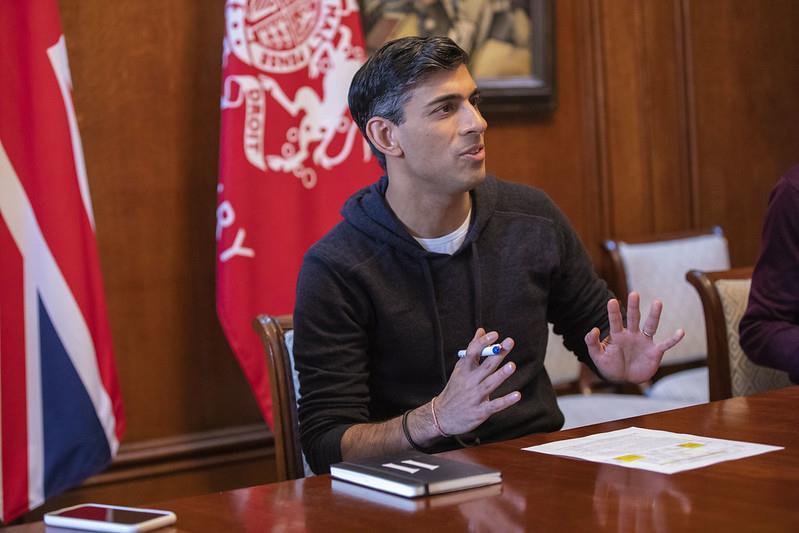
Health Service Journal's Henry Anderson has seen a note to finance directors from NHS England deputy chief financial officer Ed Waller.
Waller wrote “at this point, the Government is asking the NHS to maintain its current levels of activity and to minimise the impact of strikes on patient care … given the ongoing discussions about the wider impact of industrial action, we are not allocating the £200 million to systems immediately.
“As we discussed, this funding will be required to meet the incurred and ongoing additional costs of industrial action and will provide support to continuation of current activity levels in that context this winter. It will not be available to support new initiatives.”
'Cut' readers do not need reminding that the 2022 Act removed any meaningful independence from NHS England, rendering it a wholly-owned subsidiary of the Secretary Of State For Health But Social Care and his department.
Given Secretary Of State For Looking Baffled Steve 'The Banker' Barclay's unsubtle attempts to demonise the BMA (both directly and through the usual Conservative And Unionist Party partisan media stenographers), it is a striking compliment that he has felt the need to establish a DHBSC/NHSE 'Strike Fund', along the lines of the BMA's.
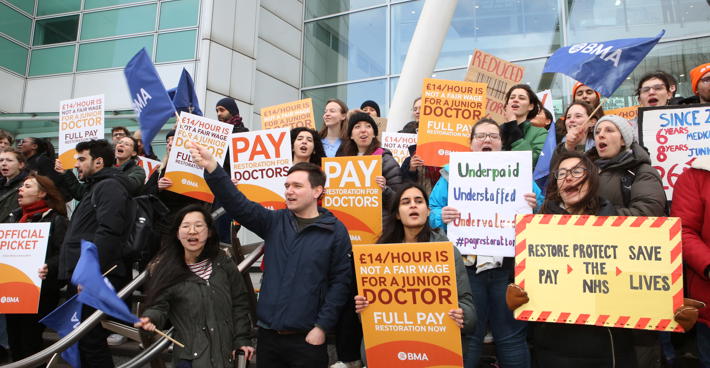
Imitation is indeed the sincerest form of flattery. The Banker, however, is directly using taxpayers' money to fund his. And the BMA membership have voted on their industrial action campaign very recently.
The Banker writes

On the first day of the consultants' industrial action over pay, Mr Barclay took to the pages of the Boris Johnson Fanzine, with this tour-de-farce of a comment piece. He asserted that "the impact of industrial action is most obvious on waiting lists. Before doctors went on strike, even through a difficult winter, lists had stabilised at around 7.2 million. But during repeated strikes this year, this figure has grown to 7.68 million".
The data do not bear this out: BMA junior doctor strikes started in March 2023, and consultants (who'd 'never strike', remember?) in July 2023. If you read Dr Rob Findlay's excellent columns in HSJ, what you find out is that in recent times, there was one month in which RTT waiting lists did not rise in the past year, and that was November 2022.
Appearing on Sky News, The Banker claimed that "this escalation increasing militancy, a desire politically to time strikes, including with the Conservative Party conference to refuse exemptions that have been agreed locally by their own representatives, as we saw in some cases in August.
Isn't it adorable? Team Banker briefed the BJF that the NHS will be included in new legislation to force minimum staffing levels during strikes.

The Department For Health But Social Care even issued a press release about a consultation for introducing MSLs.
This is really quite a special idea. What will happen when this is tried?
Let's say that all NHS staff go out on an indefinite strike. The Government can then force the correct number of staff back to work to provide safe care.
It’ll be funny when they realise that there aren’t enough, because NHS care has not been safely staffed for years.
It’ll also be, directly and explicitly, the Government’s fault that the NHS is not safely staffed. (It has been since the 2022 Act made NHS England a wholly-owned subsidiary of SOS/DHBSC, of course, but nobody’s really noticed that because it’s detail, and detail is too difficult.)
Number 10 (and 11?) undermining The Banker
As irony would have it, the BMA consultants' committee released its letter to PM Sunak on the first day of the consultants' strike. And it undermines The Banker's robust position quite spectacularly. Life comes at you fast. Even if you look baffled. Maybe particularly if you look baffled.
It reads, "we are grateful to your officials for the constructive conversations about how we may settle this dispute. The BMA consultants committee have been clear that strikes could be avoided if the Government were to present us with a credible offer that we could put to our members. We have been consistent in this view throughout, dating back to before we even balloted for industrial action and this very much remains our position. We are willing to negotiate with government at any stage, but for strike action to be stood down we need to be able to present our members with an offer and cannot cancel strikes to simply enter talks.
"We thought it would be helpful to reiterate exactly what the key asks of the consultant committee are and what would be required to end the dispute. Data from the Office for National Statistics has demonstrated that consultants have experienced much greater pay erosion than other public sector workers and have seen their pay fall much more than those in the private sector. We are simply asking for fairness and are demanding an end to real terms pay cuts and a fair mechanism for this pay loss to be corrected.
"We are, therefore, seeking a pay package for 2023-24 above the level of RPI inflation for the 12 months until April 2023 (the date at which the award applies) that ensures our pay is not eroded further. This is not dissimilar to the settlement in Scotland for junior doctors, which demonstrates that this is deliverable. We are willing to consider investment in non-headline pay areas, to help reach agreement.
"We are also seeking that the independence of our pay review body, the DDRB, is fully restored in line with its founding principles. Once restored, the new DDRB should be jointly commissioned to review what has happened to consultants pay since its remit was constrained by Government in 2008. The DDRB should then make a fully independent assessment of what a consultant should be paid, considering the quality of recruitment and retention and pay in comparable sectors and its recommendations implemented accordingly."
It's smart of the 10 Downing Street operation to do this back-channel negotiation, although they have not been smart about much in relation to the NHS industrial action so far. This makes me think that the organising brain behind this sits in 11 Downing Street: this smacks hard of one Jeremy Hunt.
Local derorgations? No local derogations!
On his jolly media round, The Banker told BBC Radio Four Today that in August, “there were 17 examples where local NHS leaders and BMA local representatives agreed exemptions that they locally felt were necessary in the interests of patients”, but that these were “vetoed by the national BMA committee that’s decided to take a much more radical approach”.
Mmmmmmmm.
Now, in a letter to the Health Secretary, five BMA Local Negotiating Committee chairs with first-hand knowledge of 12 of the derogation requests to which Mr Barclay referred, say that this is deeply disingenuous.
Their letter says, “while derogation requests may be discussed at a local level, it is not the responsibility of Local Negotiating Committees (LNCs) to come to any agreements with NHS leadership during strike action. As the LNC chairs involved in 12 of these requests, we can tell you, it is categorically untrue that any agreements were made locally. Derogation requests are subject to a national process which has been agreed by both the BMA and NHS England.
"In fact, despite our Trusts’ initial derogation requests, urgent and emergency services continued to be delivered with other doctors stepping in to provide cover for their colleagues.”
The price of industrial action over pay

Health Service Journal's James Illman reports that most major teaching hospitals have paid consultants the BMA ratecard price for cover for junior doctors striking over pay. That means £269 per hour for nightshifts and £161 per hour for dayshifts.
HSJ's review of the Shelford Group cohort found that seven of the 10 largest teaching trusts paid consultants these higher overtime rates for covering August’s junior doctors’ strike: during the junior doctor’s strike in April, only two of the 10 trusts were paying the higher rates.
And what do the public think?
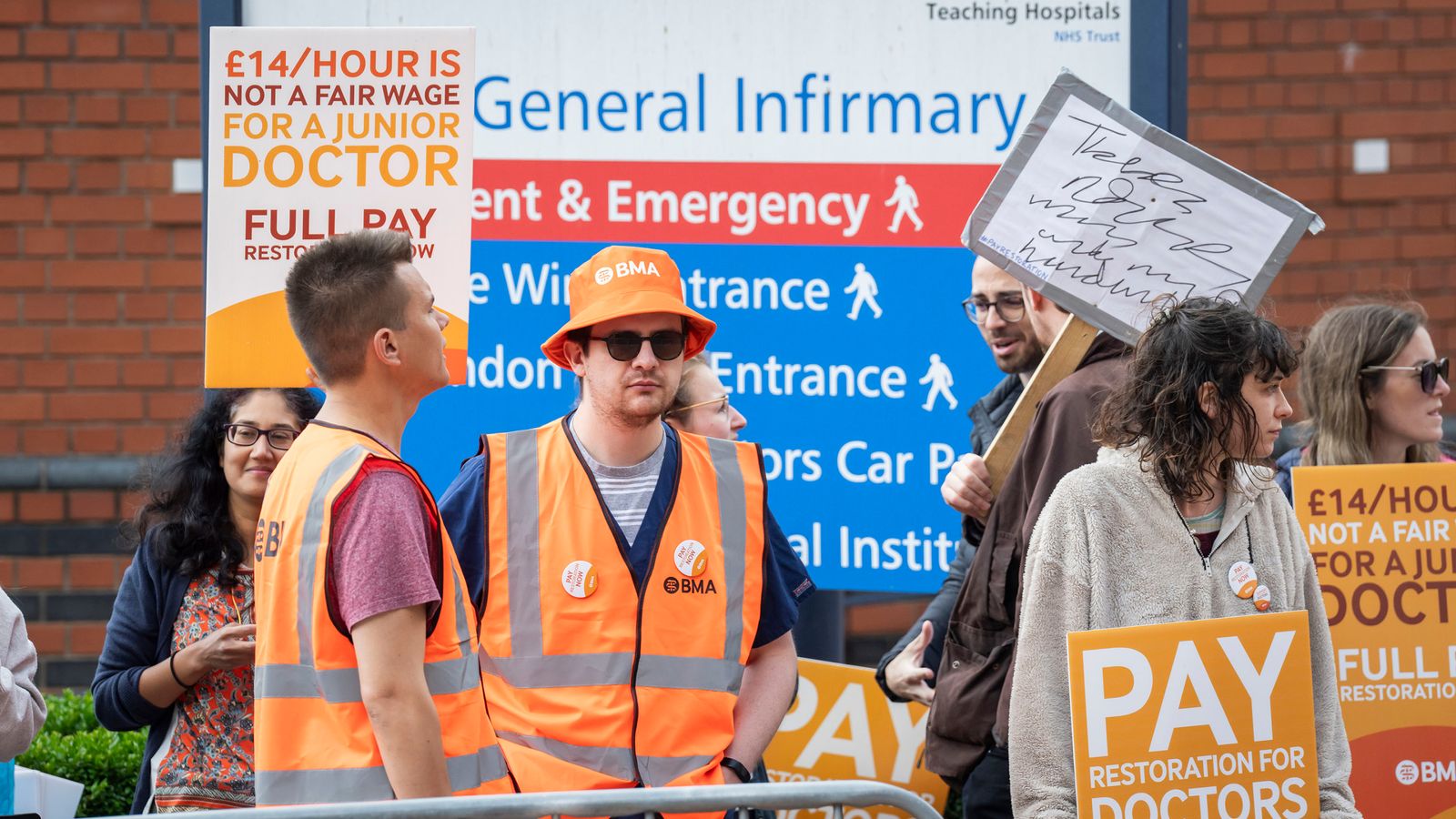
New YouGov polling on responsibility for the NHS strikes given to Sky News reveals that of those sampled (online), 45% of the British people blame PM Sunak and his Cabinet; 21% blame the British Medical Association and 25% blame both equally. (2% of people said neither were to blame and 7% said they didn't know who was at fault.)
Yes, it’s online-only polling, but it remains (ahem) striking that, this far into the disruption to public services, the Government’s ‘blame the medics’ strategy on the NHS industrial action over pay is continuing not to work.
BSA 40 reveals the public expect more from government

The 40th British Social Attitudes survey from NatCen reveals that a growing number of the British population feel Government should do more.
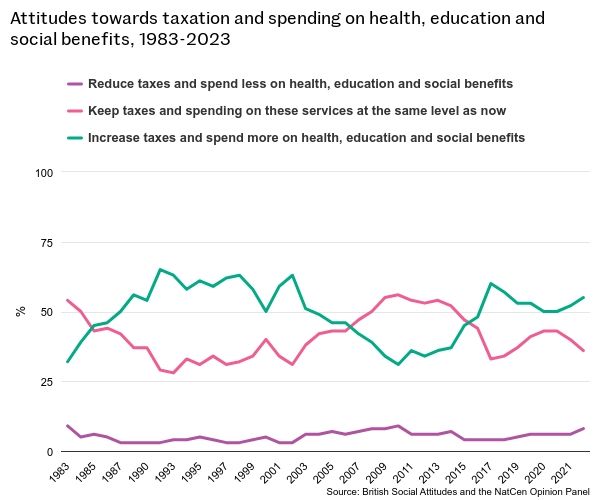
Specifically, on the subject of whether the Government should 'increase taxes and spend more on health, education and social benefits', the percentage of those sampled by NatCen for BSA40 is comfortably back above 50% (having dropped under 50% between 2004 and 2016).
It is vital to remember that the BSA data is about people's expressed preferences. How they vote in General Elections shows their revealed preferences. It's still an interesting bit of data, though.
Regulating NHS mangers "is coming". Are we clear why?
Regulation for NHS managers "is coming", according to Number 10's preferred NHS England chief executive Sir James Mackey.
HSJ reports his remarks that "honestly, I think it’s coming. So we just need to go with it and make it as effective as it can be. It’s completely understandable in the current context for politicians and the public to want people in these positions to be regulated.
“There’s potentially some protection for people in being regulated in an effective way, as well as [being subject to] clear rules, clear processes. If somebody makes an allegation and it’s found to be wrong [and] you’ve been through a thorough regulatory process, it’s going to help you to move on and put it behind you.”
Sir James has greater faith in the available Parliamentary timetable than I do, given that primary legislation would almost certainly be needed.
But there are slightly more important issues than legislative timetabling. Here is the main one: what is the problem that we are trying to fix with regulation?
Is it a post-horse-bolting, stable-door-closure thing for the Countess Of Chester paediatric serial killer case? All of the senior leadership team involved in that were from regulated clinical professions. So it ought not to be.
Are we trying to solve the NHS ‘failure merry-go-round’ revolving door problem?
If we are, then we should be careful. This 'recycling/rehabilitating' system has rightly been used to rehabilitate NHS managers who got badly fucked over by poor decisions locally, regionally and nationally (often, being appointed a senior director or CE way too early, in a problem or toxic trust).
The 're/re' system has also been used to shuffle on bullies, incompetents and power-mad wankers, with whose toxicity local, regional or national organisations don’t want to or aren’t competent enough to deal.
Nobody in their right mind should defend this use of it.
Much of the current push sems to come from doctors, expressing an "I'm regulated, so you should be too" vibe. Misery loves company, but this is a vibe more than an actual thought.
I'd refer anyone arguing that vibe to how the vast majority of clinicians feel about their regulator: the GMC makes the CQC look popular. "If we’re in the shit with a dysfunctional and ineffective regulator which we all hate, then you should be too.”
NHS managers don’t arrive in a puff of smoke. The management trainee schemes used to be regarded as one of the best around. After that, NHS organisations and boards had to appoint them to jobs for which they applied, and so had what we must presume to be a rigorous interview process.
(That said, the NHSE CE recruitment process relied on a hefty dose of ‘woo’ psychometric testing.)
If we want the regulation of NHS managers to solve the problem of bad processes and bad judgment on the recruitment, retention and development of NHS managers, then I predict with Olympian confidence (and I’m usually right about everything, remember) that it will not work.
Also … what would the professional regulation of NHS managers do to NHS England’s longstanding habit of blatantly incentivising them into financial lying and cheating?
Clearly, this couldn’t have any foreseeable negative consequences … oh.
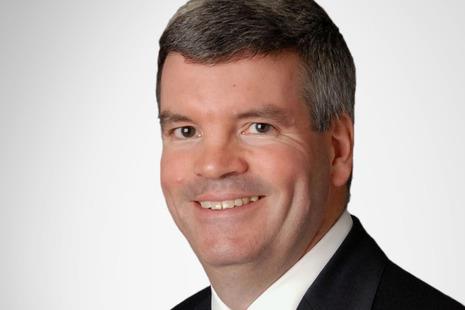
“Explanations exist; they have existed for all time; there is always a well-known solution to every human problem — neat, plausible, and wrong.”
H L Mencken, ‘The Divine Afflatus’
Going to RAAC and ruin
This i News story reporting the Department For Health But Social Care's claims that it cannot answer PQs on which NHS buildings have RAAC concrete within the usual one-week timescale is curious.
I have been reliably told the NHS England have a full list. Given that NHSE is now a wholly-owned subsidiary of the DHBSC, surely officials could just ask? Otherwise, what's the point of physical co-location?
Cronyvirus and coronamillions update
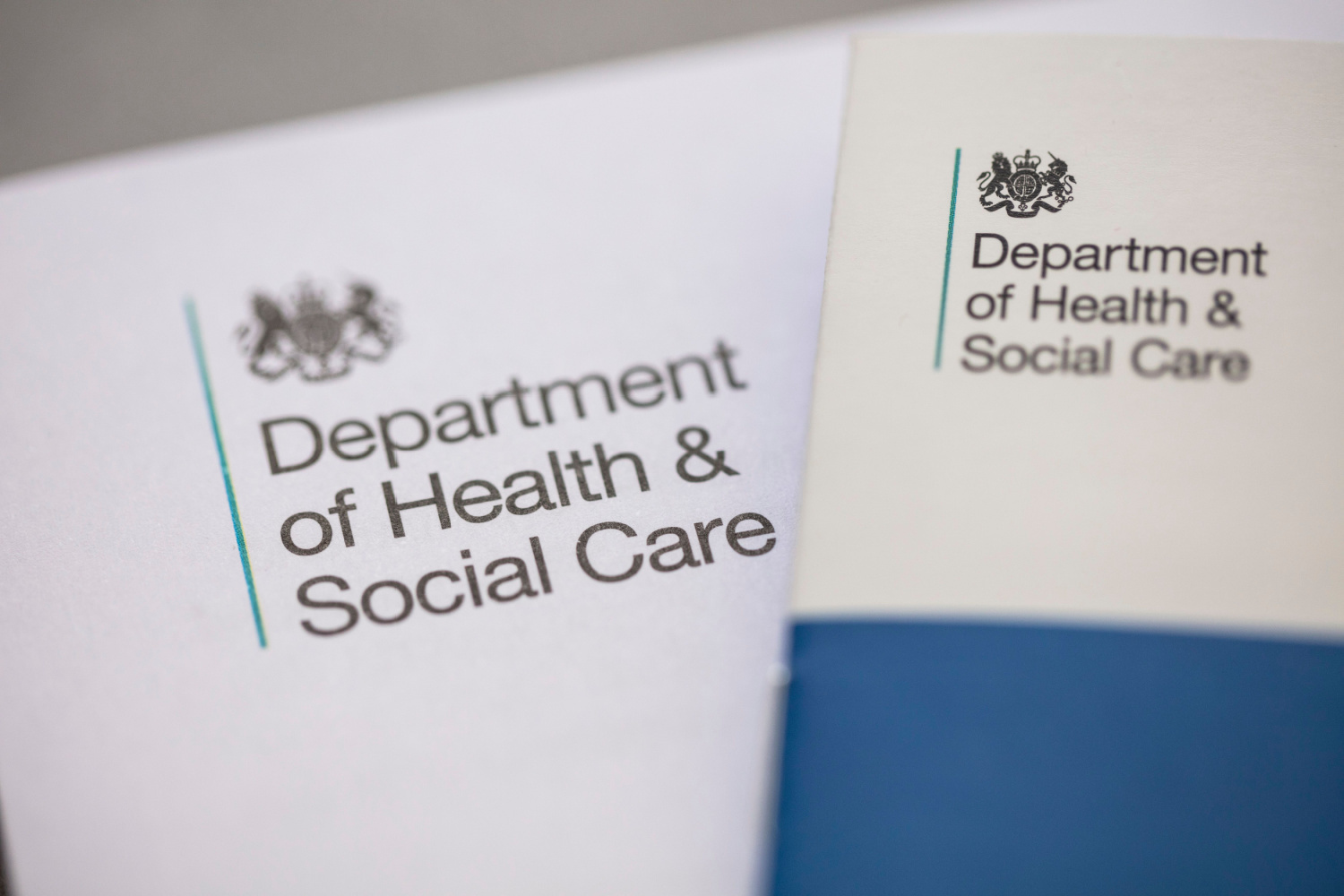
The Good Law Project's latest health work revealed that the Department For Health But Social Care have made £137 million in hidden payments to Phoenix Partnership: a firm wholly owned by Frank Hester, who no doubt by sheer coincidence was a donor of £5 million to the Conservative And Unionist Party earlier this month.

DHBSC claims that these payments were made to Phoenix Partnership under a published 'contract framework', although none of the procurements appeared on the Government's 'Contracts Finder' website.
What a wonderfully generous man Mr Hester is, if you're the Conservative And Unionist Party. And what a wonderfrully generous procurer of his company the DHBSC is. I wonder whether these two things might be in any way related.
The Alan comeback/comeuppance

The TV show for the kinds of blokes who think their Dads fought in World War Two, SAS Celebrity Nonsense: Who Cares Who Wins (starring The People's Partridge and some other K-listers) begins broadcasting this week, taking UK Tuesday night television to what is bound to be a new nadir.
Alan's preview quotes are masterpieces of bathos: "They were pretty rude. Calling me names, taking the p** out of my surname, and God, it p***ed me off.
“But everybody has a view of me, and I’d rather people had a view of me as I really am. So with all my flaws on the show, when you’re under massive physical strain and you’ve been woken up in the middle of the night, you can’t hide."
“To make something like this work, you’ve just got to go all in. I went in as a politician and I came out as a human being.”
Alan: not the hero we need in 2023, but the hero we deserve.
Recommended and required reading
FT piece about the Biden administration's efforts to bear down on US pharmaceutical prices: the industry asserts that this will stifle innovation ...
Another fine 'Mythbuster' by Steve Black in HSJ.
Dame Kate Bingham on Disease X and the lessons unlearned from Covid19 in the Mail.
Lib Dems to offer free social care, it seems.
This new report by the Nuffield Trust with The Kings Fund, commissioned by Community Pharmacy England, sets out the scale of ambition for community pharmacy, and how it can contribute to key goals around population health and prevention.







